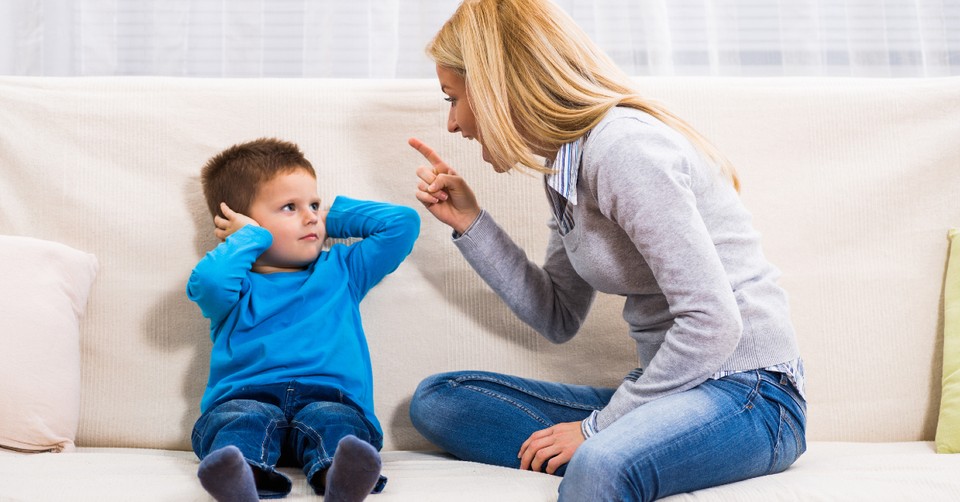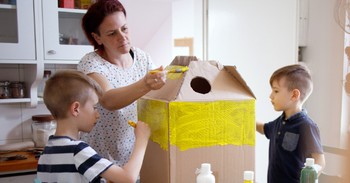Every parent has those days where they are convinced they are the worst parent in the world and wonder, “Am I a good parent at all?”
A great bad parenting example comes from one of my all-time-low parenting days a few years back. I was newly pregnant, we were in the midst of selling our home, looking for a new home, and I had to keep our 1 and 3-year-old boys out of the house so it would stay clean.
We ventured out to a park and when we were finished, I started loading my one-year-old in the car. I closed his car door and walked to the other side of the car to put our 3-year-old in and was horrified that I had locked my sweet baby boy in the car alone!
Up to this point, I was convinced that all parents that I’d read about making this very mistake were unfit and negligent parents. Here I was crying and unsure of how to quickly rescue my baby from the car.
Thankfully, the police came quickly and broke the front window so he could be released. By God’s grace all turned out well, despite some money lost on a replacement window.
All of us parents have those moments where we make a mistake we swore we’d never make. If we like it or not we are quick to judge the failures of others we deem as “bad parents” but none of us are perfect at this thing.
Yet, there are all ways we can grow to be better and habits that if go unchecked create strife in our homes. We all need solutions to those “bad parenting moments.”
Let’s explore some of the qualities of bad parenting that we should avoid alongside ways we can develop some good parenting skills:
Photo Credit: ©GettyImages/LittleBee80

1. Bad Parenting Focuses on Punishment Rather than Responsibility
The past year my husband and I went through the training to become Foster Parents. The process was eye-opening to parenting strategies that we relied on that were really less effective than we thought.
One strategy that we had to throw out the window was focusing on punishments over the encouragement of personal responsibility.
This in no way means you don’t help your child grow when they make mistakes. It requires parents going beyond our inclination to quickly dish out shame and consequences for our kid's behaviors.
Instead, we need to lean into offering loving guidance, carefully explain the limits we set for our kids with empathy, and model the kinds of behaviors we want our kids to display.
Aha Parenting explains that emphasizing responsibility is the best way to raise a moral child that wants to do the right thing.
When we embrace this strategy, it will help curb so many of our less than pretty parenting moments.
Empathetic guidance, we can all agree, doesn’t include yelling at our kids or shaming them for not behaving with perfection. It excludes physical punishments, like hitting or spanking your child. It avoids angry scolding when we’ve just “had enough” of our kids actions.
It does look like face-to-face honest communication, talking through what just went down together.
It is us emphasizing principles that define how to behave like a person of character with our kids over long lists of “do’s” and “don'ts.”
It enlists the problem-solving skills of your child to come up with suitable ways to avoid repeats of the same situations. It asks how they can take responsibility and make amends for the harm they have done.
Photo Credit: ©GettyImages/fizkes
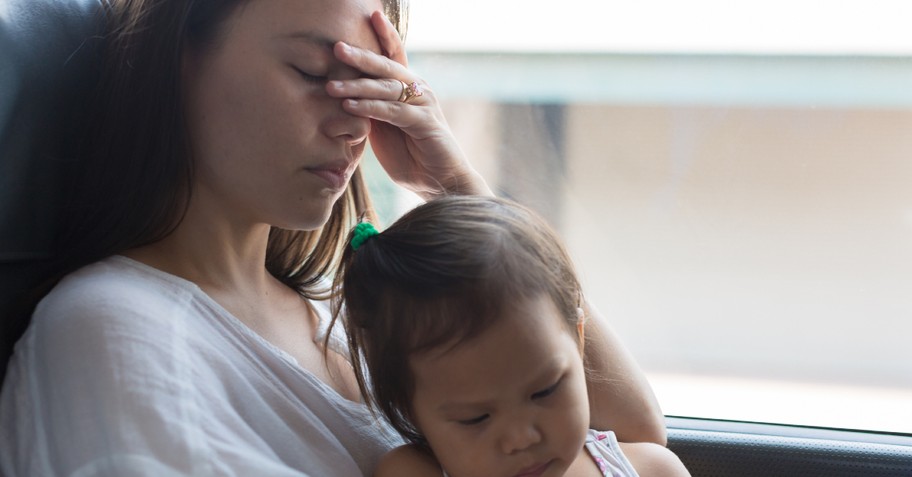
2. Bad Parenting Holds Up Unfair Expectations
Why are child development books so important for parents to read? Because it is difficult to set fair expectations about what your child should be capable of doing without understanding where they are in their development. This is especially true with younger children. For many parents, it can be jarring when their once precious bundle-of-joy turns into a tyrant, wild-child one-year-old.
It can be easy to get frustrated and feel like a “bad parent” because your 18-month-old bit all the kids in their daycare class (true story of how my oldest behaved at this age). When we understand that one-year-olds often hit, bite, and more at this age, it can take some of the pressure off of you as a parent.
In addition to understanding your child’s development, it’s important to take in account your child’s personality.
My oldest is very cautious. Knowing this about him helps me to respond with empathy when he expresses anxiety about new experiences. Rather than getting frustrated that he feels apprehensive about joining in, I can get on his level and talk him through the big feelings he is dealing with.
It is unfair to expect your child to never have fears, failures, or perform on grade-level in every instance. None of us as adults approach life with this level of ability.
We have butterflies in our stomach before an interview or on occasion bomb a work assignment. While it’s important to emphasize responsibility, this should be paired with empathy.
Kids today suffer from anxiety at alarming rates. It’s our job to help them work through failure, challenges, and grow resilience as a part of their character.
Photo Credit: ©GettyImages/globalmoments

3. Bad Parenting Fails to Set Proper Limits
Self-control is one of the greatest predictors of a successful and satisfying life. The challenge is that kids have to learn how to grow their ability to have self-discipline. It is not a natural instinct to think before acting.
Setting limits for our children is one of the essential ways that we help them grow in their self-discipline. Without us modeling and guiding them away from actions that are harmful or hurtful, they never learn how to properly self-regulate their behavior.
The question then is how do we properly set limits for our children? Oftentimes I find myself going from one extreme to the next; either I am too lax and everything goes or I get too frustrated and respond with exasperation.
Aha Parenting explains there is a better way! Our limits need to be empathetic. Kids can “buy into” the limits we set if they know they come from a place of love and understanding.
The end goal is that we raise independent people that have the ability to manage themselves well on their own, that is why them deciding on their own to comply with the limits set is so important.
How do we combine limits and empathy? A great example would be when one child hits the other because they are very mad.
When you approach the child that hit you first acknowledge their anger. Let them know that you see how they are feeling. Then you address the behavior and let them know it’s never okay to hit another person. Now it’s time for you to prompt communication between siblings and ask the child that hit to talk to their sibling about how they are feeling and also communicate an apology.
In that situation, you have shown empathy for the feelings of your child, while enforcing the limit that we are never to hit others.
Another key part of setting proper limits as a parent is consistency. If the limit is worth enforcing, then the enforcement should be consistent. Kids have a keen awareness when there is wiggle room in the boundaries we place and when we aren’t consistent they tend to push the limit.
Practice makes perfect when it comes to them understanding how to honor the boundaries you place, which is also why consistency matters.
Photo Credit: ©GettyImages/fizkes
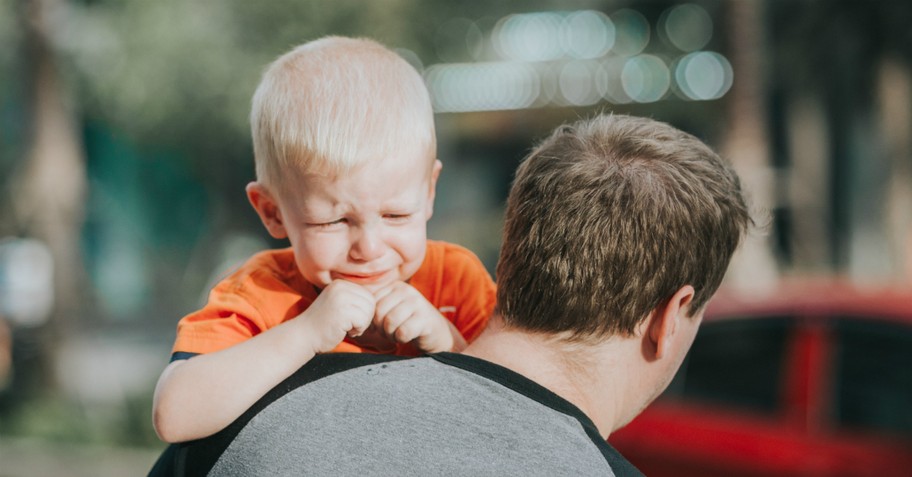
4. Bad Parenting Doesn’t Allow Your Kids to Fail
We’ve all heard the term “helicopter parent” or “bulldozer parent” and now know this stance is not really the best for our kids but sometimes our Mamma and Daddy Bear instincts push us to take all the challenges away from our kids even if we know better.
Let’s be honest, seeing our kids struggle truly breaks our hearts! We want to step in at their first sign of distress and help them out, who can really blame us?
I am just as guilty as the next person at creating too much comfort for my kids. I’ve really had to work to make sure my kids get the chance to practice experiencing failure and responsibility. I literally have had to train myself to ask my kids to help, rather than completing every task for them.
When they’ve had trouble with school work, I’ve had to leave the room at times so I didn't immediately help them solve the problem. When they’ve experienced conflicts with friends, I’ve had to force myself to step back for a moment, so they would have the chance to solve the problem on their own.
It takes intentionality in today’s world to not be a parent that removes all the obstacles for their child.
Why is failure so important? Life experience is an amazing teacher. We are depriving our kids of one of the best ways they can learn when we take away all the challenges they face.
As they grow, the feeling that they overcome on their own creates a sense of strength and grit. Without this self-assurance, studies have found that kids are more likely to experience anxiety.
So let’s all take a deep breath and remember, failure is important and let them go a little bit more.
Photo Credit: ©Pexels/Ba Phi
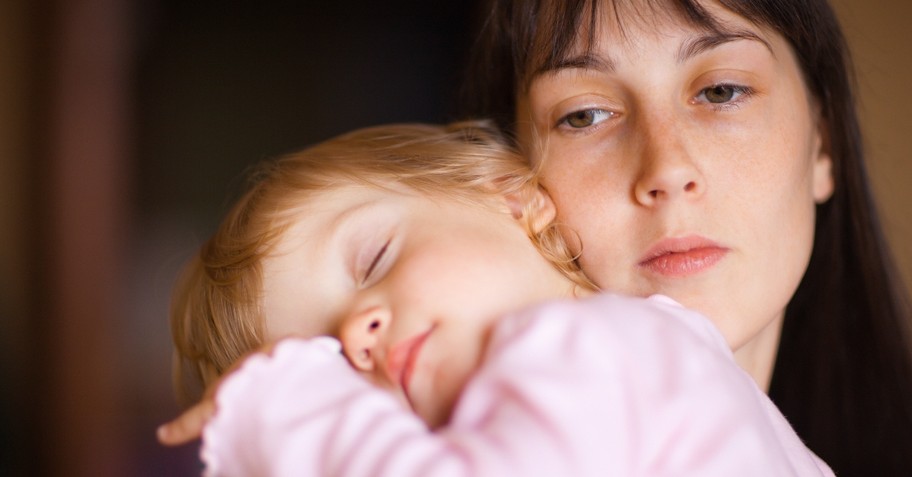
5. Bad Parenting Promotes Entitlement
No one wants to raise an “entitled” or “spoiled” child but in today’s world, where material possessions are so easy to accumulate, it can be a real challenge not to communicate to our kids that they deserve more stuff.
There is a delicate balance between communicating worth and love to our kids and avoiding an “entitlement” mentality. My kids’ long lists of items they want for their next birthdays goes to show that avoiding the allure of more, more, more for me is a hard task for us parents!
Aha Parenting offers some great tips on how to empower our kids. Avoid substituting things for emotional connection.
Giving your child gifts is an instant way to bring them joy and it also can be a way to soothe our guilt for not showing up for our kids in the ways we would like.
If you are feeling disconnected, offer them time and experiences, rather than toys and treats.
Give your child the chance to earn things through hard work. Learning the power you have to work and make your own money is a wonderful and empowering lesson we can teach our kids. Beyond that they will be overjoyed to see that their efforts have helped them achieve their goals.
Emphasize care and gratitude for the things you have. Modeling how to take care of your possessions and showing your kids how to have a grateful heart for possessions goes a long way in helping put those possessions into proper perspective.
One way to teach kids that things require care is to let them know that they are responsible for damaging a good. For example, if they lose or ruin a library book, they can contribute to paying for it.
One amazingly encouraging fact that we learned while going through the Foster Parent training was that meeting your kids' needs correctly about 30% of the time is all it takes to grow secure and well-attached kids.
Perfection is not required as parents, just doing your best to show up well as much as possible goes a long way in growing strong and kind kids. The work we do as parents is so very important, so don’t grow weary in the good work you are doing!
Amanda Idleman is a writer whose passion is to encourage others to live joyfully. She writes devotions for the Daily Bible Devotions App, she has work published with Her View from Home, also for the MOPS Blog, and is a regular contributor for Crosswalk.com. You can find out more about Amanda on her blog or follow her on Instagram.
Photo Credit: ©GettyImages/zergkind
Originally published May 15, 2020.
